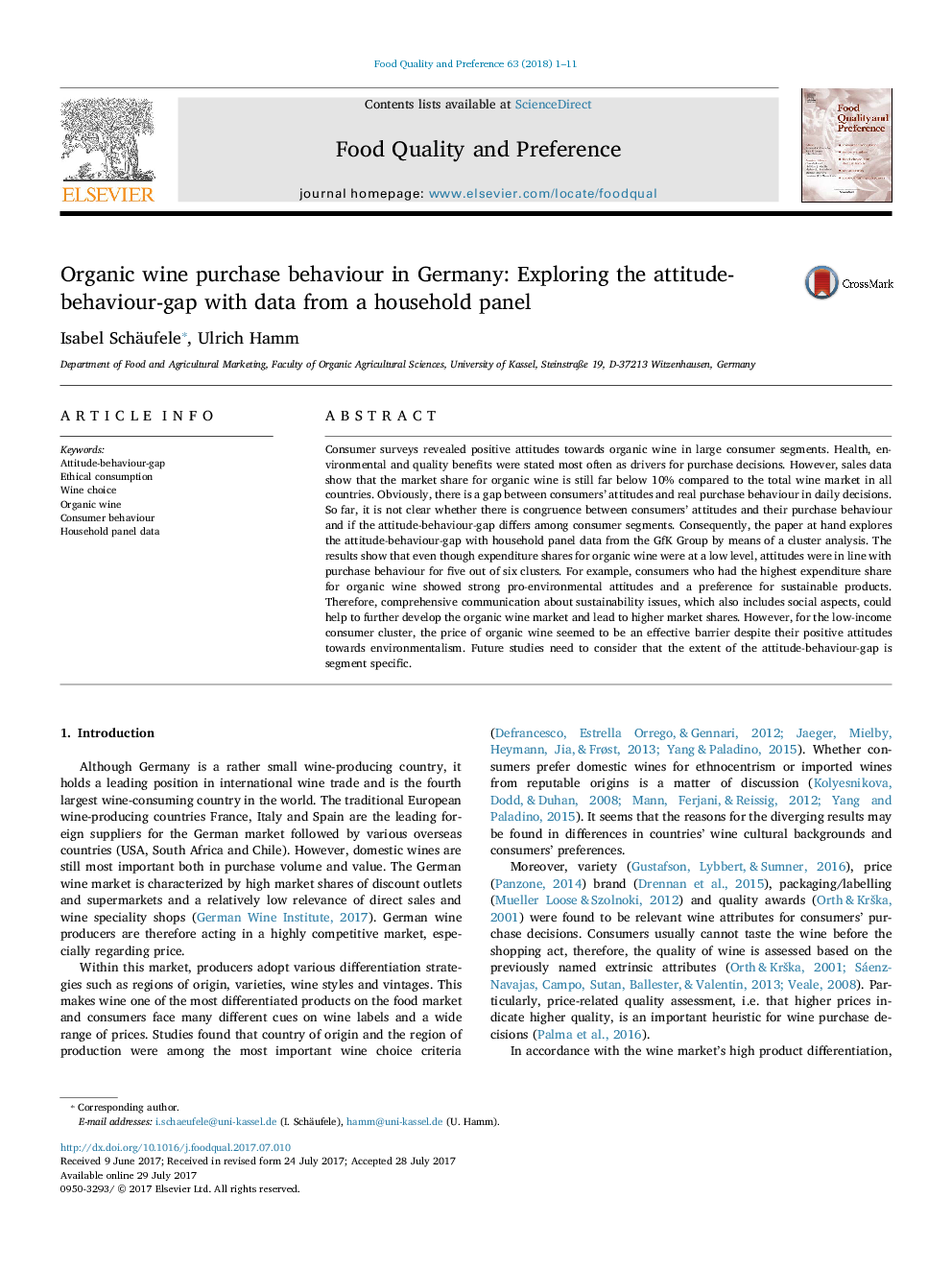ترجمه فارسی عنوان مقاله
رفتار خرید شراب آلی در آلمان: بررسی نگرش-رفتار-شکاف با داده ها از پانل خانوار
عنوان انگلیسی
Organic wine purchase behaviour in Germany: Exploring the attitude-behaviour-gap with data from a household panel
| کد مقاله | سال انتشار | تعداد صفحات مقاله انگلیسی |
|---|---|---|
| 102055 | 2018 | 11 صفحه PDF |
منبع

Publisher : Elsevier - Science Direct (الزویر - ساینس دایرکت)
Journal : Food Quality and Preference, Volume 63, January 2018, Pages 1-11
ترجمه کلمات کلیدی
نگرش-رفتار-فاصله، مصرف اخلاقی، انتخاب شراب، شراب آلی، رفتار مصرف کننده، داده های پانل خانگی،
کلمات کلیدی انگلیسی
Attitude-behaviour-gap; Ethical consumption; Wine choice; Organic wine; Consumer behaviour; Household panel data;

